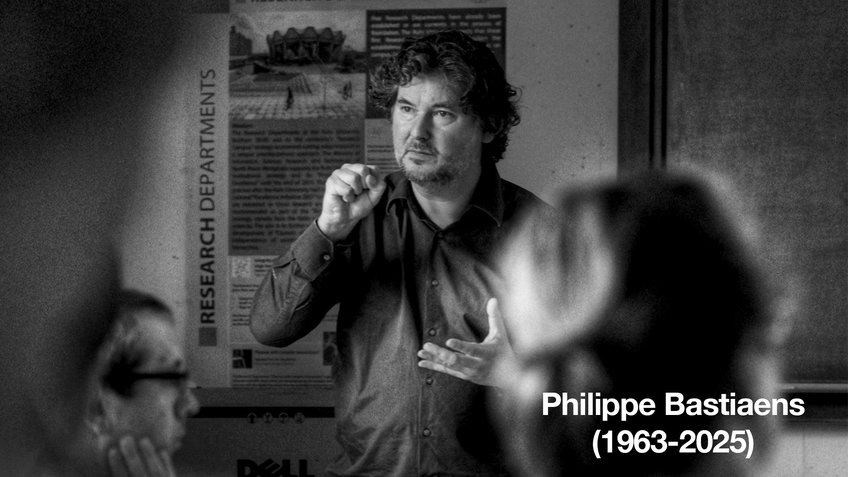
The Max Planck Institute in Dortmund mourns the loss of Philippe Bastiaens
Professor Dr Philippe Bastiaens, long-standing head of the Department of Systemic Cell Biology at the Max Planck Institute of Molecular Physiology in Dortmund, died suddenly and unexpectedly on 15 May 2025 at the age of 62. Philippe Bastiaens was a leading and world-renowned researcher in the field of systems biology. His death is a great loss for the Dortmund Institute and the Max Planck Society
Bastiaens was particularly interested in the architecture and dynamics of intracellular communication. He was a pioneer in the development and application of innovative microscopy approaches for the analysis and elucidation of these complex processes in living cells. A milestone in his work was the discovery of the mechanism of membrane localisation of Ras proteins, which play a key role in the development of tumour diseases. His groundbreaking scientific discoveries led to new possibilities in cancer therapy. A strongly theoretical aspect also played an important role in his research work. In recent years, he developed a unique concept of cellular memory.
Philippe Bastiaens was born in 1963 in Den Helder (Netherlands). He studied biochemistry and molecular physics at Wageningen University (Netherlands) and at the University of Georgia (USA) and the University of Illinois (USA). In 1988, he received his degree (with honours) in Engineering in Molecular Sciences from Wageningen University, where he also completed his doctoral thesis in biochemistry with honours from 1989 to 1992.
From 1993 to 1996, he was a postdoctoral fellow at the Max Planck Institute for Biophysical Chemistry in Göttingen. During this time, he developed an interest in spectroscopic techniques for investigating protein interactions in living cells. In 1997, he became a group leader at the Imperial Cancer Research Fund in London. In 2000, he returned to Germany and took up a position as group leader at the renowned European Molecular Biology Laboratory (EMBL) in Heidelberg. At the same time, he became a professor at the University of Amsterdam, where he focused on the microscopic analysis of the dynamics of biochemical processes in cells.
In 2006, Philippe Bastiaens was appointed Director of the Department of Systemic Cell Biology at the Max Planck Institute of Molecular Physiology in Dortmund and in 2007 Professor of Cell Biology and Systems Biology at the Faculty of Chemistry at TU Dortmund University.
As an academic teacher and mentor, he passed on his expertise and experience to numerous students with great enthusiasm. With his tireless curiosity and dedication to research, he was a great inspiration to young scientists and many colleagues.
The mark he leaves behind will continue to shape his field, and he will live on in the hearts of those who had the honour of knowing him and working with him. The staff of the Max Planck Institute of Molecular Physiology will miss him greatly and honour his memory with deep affection.

